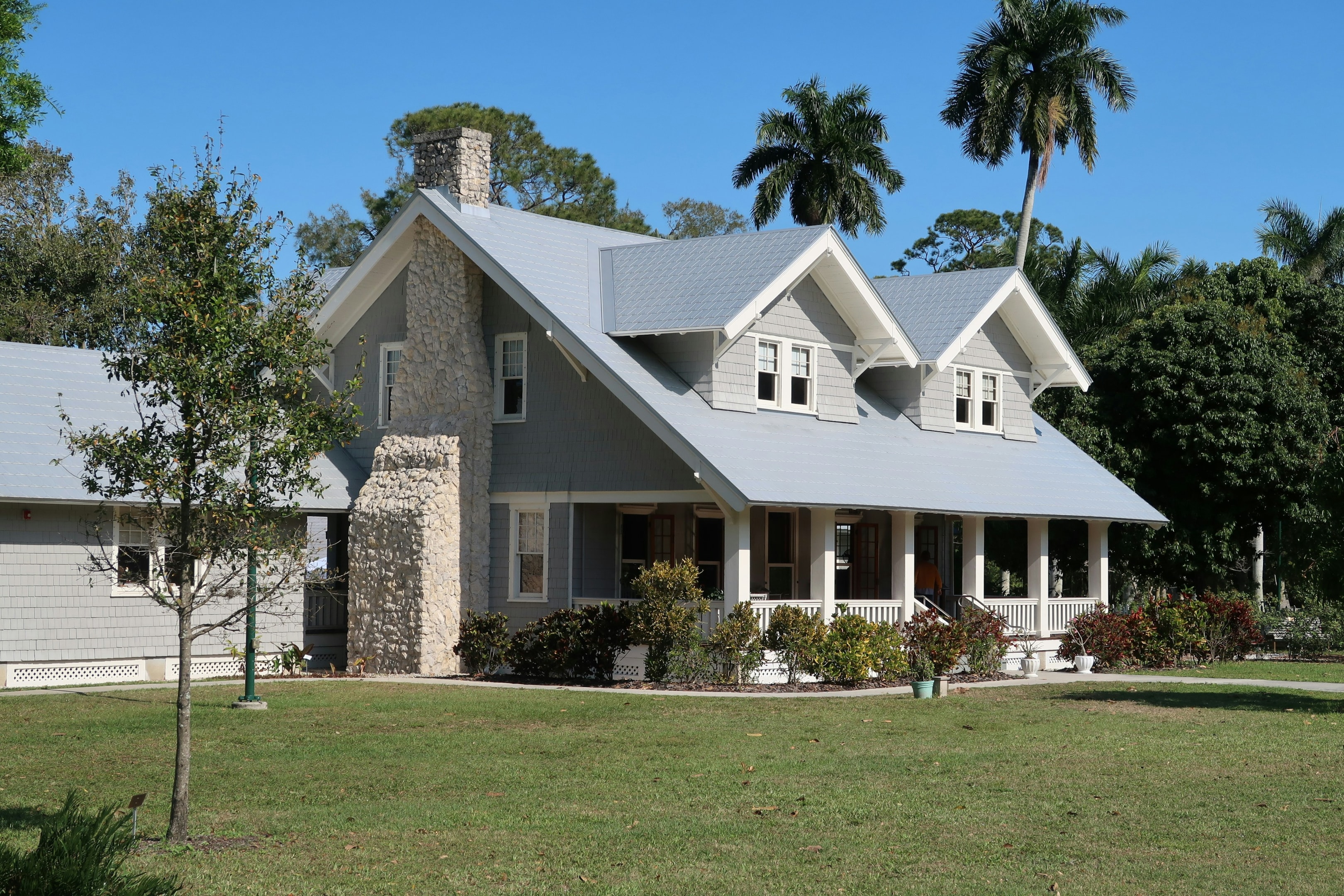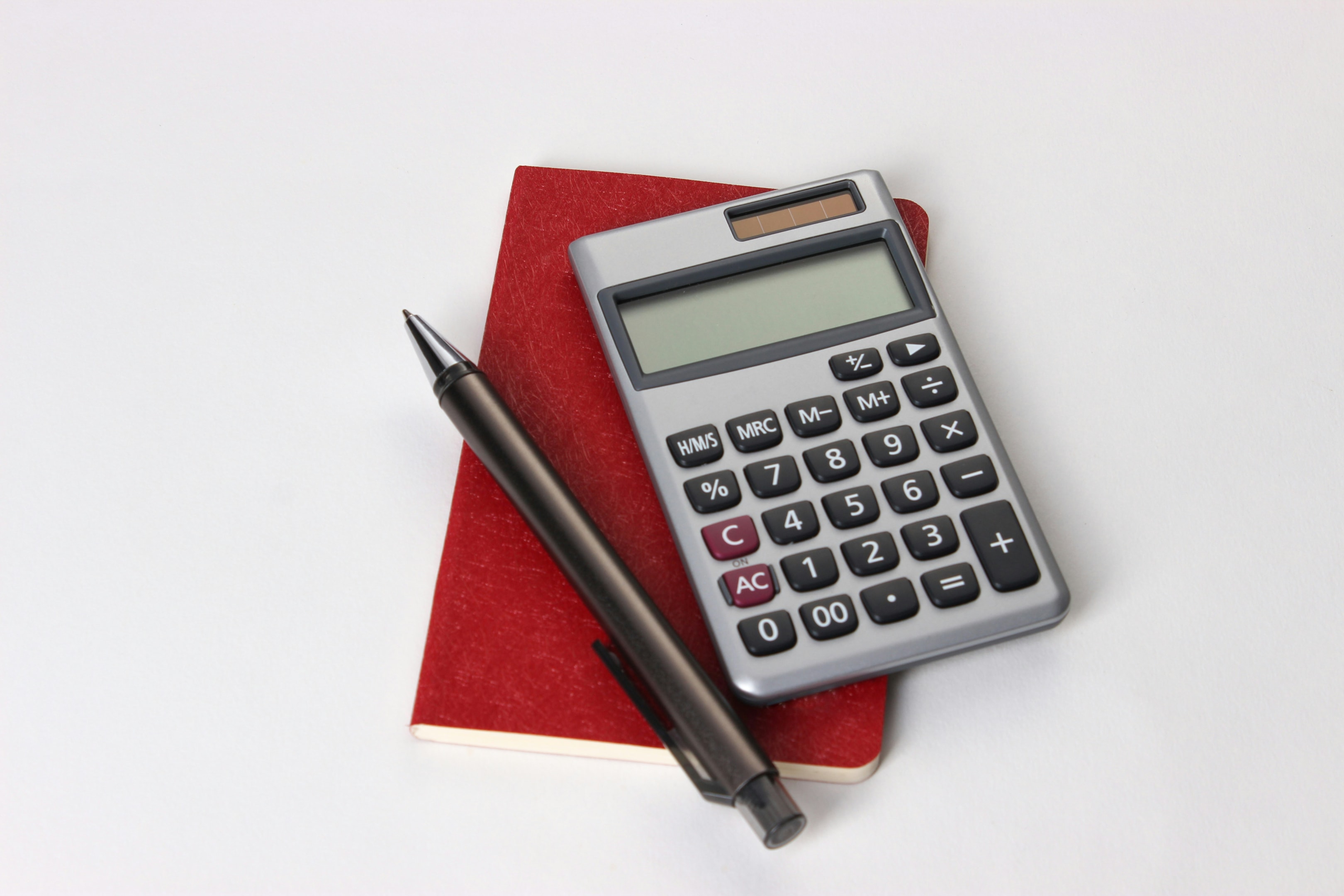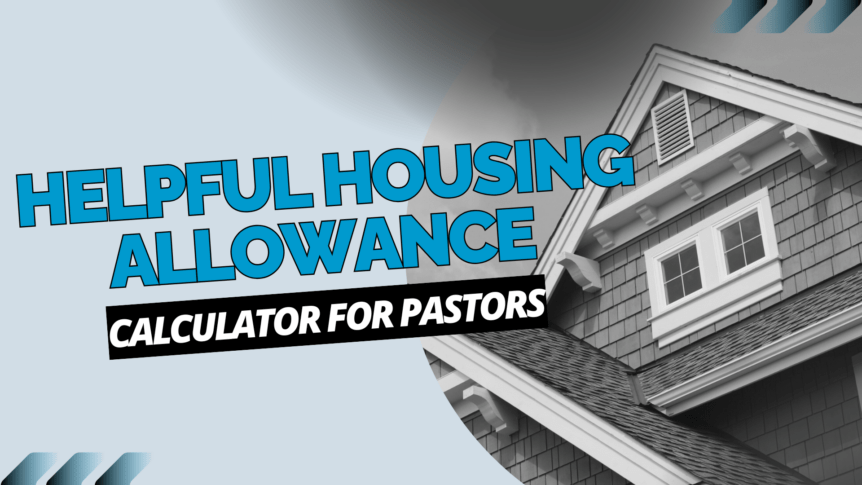The Minister’s Housing Allowance is an amazing benefit for any pastor who qualifies. With the help of our housing allowance calculator, we’re here to make sure you use all of these benefits.
Whether you are a pastor or minister who qualifies for the benefit or work in the realm of church finance or human resources, it’s essential to know how this policy affects full-time pastors and clergy. We’ve got you covered here with information, tips, and helpful ways to take advantage of the housing allowance.
Estimated reading time: 11 minutes
Table of contents
- Housing Allowance Calculator
- Who Can Claim a Minister’s Housing Allowance?
- Factors for determining a housing allowance for clergy
- Who Approves the Minister’s Housing Allowance?
- What Are The Responsibilities For The Minister in Regards To Housing Allowance?
- Why Have a Housing Allowance?
- Why is it simple to designate and calculate?
- Quick Facts about Housing Allowances
- Take Advantage of a Housing Allowance
- Understanding Taxes
- Full Advantage
- Related Sources on Housing Allowances:
Housing Allowance Calculator
Pastor Housing Expense Calculator
Monthly Expenses
Annual Expenses
Summary
Total Monthly: $0.00
Total Annual (One-Time): $0.00
Grand Total (Year): $0.00
Who Can Claim a Minister’s Housing Allowance?

A housing allowance is the most important tax benefit available to any minister, as recognized by the IRS, who owns a home, rents or lives in a rent-free church-owned parsonage. So, how does this work?
- While actively employed at a church or church-related employer, a minister may exclude some or all of their ministerial income.
- While retired, a minister may exclude some or all of their ministerial income if a denominational pension board — such as GuideStone® — designates it as housing allowance, according to Revenue Ruling 75-22.
Now, this is a tremendous benefit to you in retirement, but, it’s important to note that this only applies to distributions from ministerial income that were deferred into a church retirement plans such as 403(b) [plan] offered through GuideStone. So in other words, an individual retirement account ,or IRA are not eligible for a full benefit of housing allowance designations.
Factors for determining a housing allowance for clergy

The first challenge is distinguishing who’s eligible for a church housing allowance. The IRS requires you to be “licensed, ordained or commissioned” as a ministry leader involved in direct ministry. While this is broad enough to cover most ministers, reverends, priests, pastors and clergy, it’s wise to talk to a tax professional to know exactly when a housing allowance can be offered.
A housing allowance isn’t intended to be a write-off for anything beyond the actual costs of a pastor’s primary residence, so the IRS has exact regulations for how much a minister’s housing allowance can be. It must be the least amount among these three options:
- Amount the church allocated as a housing allowance. This may not cover the entire cost of housing in your area, but the amount you take off your taxable income cannot be higher than this designated amount.
- Total housing expenses actually incurred. This can go beyond actual mortgage payment or rent cost to include utilities, furnishings and taxes on the primary residence, but you cannot designate any income spent on non-housing expenses as an allowance.
- Fair market rental value of a furnished home in the area. Even if you spend a significant amount on housing, this cap can prevent pastors from excluding an excessive amount from their income for a housing allowance.
These three ways to calculate a housing allowance for pastors aim to set reasonable guidelines. While it might be nice to be able to treat a large portion of your compensation as a housing allowance, it needs to reflect the value of the housing you have and need.
Who Approves the Minister’s Housing Allowance?

Any housing allowance must be board-approved and officially designated in writing by the organization before the beginning of the calendar year. It cannot be designated retroactively, meaning it must be established before the minister earns the income on which the organization designates the housing allowance.
A ministry can not change their allowance at the end of the year to match their spending. If changes are made in December, they cannot claim housing allowance on those change from January to November of that year. Any changes to housing allowance can only be designated for the future.
A designated housing allowance must be:
- Adopted by the organization’s board or leadership
- Recorded in written form (such as minutes)
- Designated in advance of the calendar year
However, organizations that fail to designate any housing allowances in advance of a calendar year should do so as soon as possible in the New Year. The housing allowance will operate prospectively.
What Are The Responsibilities For The Minister in Regards To Housing Allowance?

The minister receiving the housing allowance must determine their eligibility, understand any limits, and follow the rules. Ministers must keep records to substantiate the amount they include when calculating housing expenses.
Eligible housing allowance expenses include:
- mortgage payments (principal and interest)
- rent payments
- real estate taxes
- property insurance
- utilities (gas, electricity, water, sewer, garbage pickup, local telephone service)
- appliances and furniture (purchase or rental cost and repairs)
- remodeling expenses
- homeowners’ dues
- pest control
Why Have a Housing Allowance?

The amount of ministerial compensation you receive that is used for housing is not taxed for income tax purposes. You may still have to pay social security tax on it but that’s a separate discussion. Let’s start with a simple example.
Let’s say Pastor Ryan earns $4,000 per month, or $48,000 per year. He rents an all-bills-paid furnished house for $1,500 per month. Ryan’s church’s finance committee designates $2,500 as salary and $1,500 as housing allowance. At the end of the year, Ryan will pay income tax on $2,500 x 12 or $30,000 per year.
If Pastor Ryan didn’t have the committee designate the housing allowance, he would have to pay income tax on all $48,000 of income. That’s nice and easy because his housing cost is very easy to calculate. It gets a lot more challenging when we have variable utility costs, own our own home, or furnish our own home.
Why is it simple to designate and calculate?
A minister can claim ministerial housing allowance on their taxes as the lower of three numbers:
A. The amount officially designated (in advance of payment) as a housing allowance;
B. The amount actually used to provide or rent a home; or
C. The fair market rental value of the home (including furnishings, utilities, garage, etc.)
Since A is the amount you decide, that’s not helpful. Since you can’t see the future, you cannot know how much your housing expenses will be so B is irrelevant. You will simply designate C, the annual, rental allowance and value of your home if it were rented fully furnished as your designated housing allowance amount, A.
Figuring out the Rental Value
Step 1: Figure out what the rental value of your house is.
Use the website realtor.com or some other source for rental properties near your house. The same or adjacent zip codes are best. Find 3-5 similar houses and record their rental prices.
House address Square feet Monthly rent $/square foot
1st House: 1,500 $1,500 $1.00
2nd House: 1,600 $1,760 $1.10
3rd House: 1,800 $1,620 $0.90
Average: $1.00
Example house: 1,700 square feet x $1.00 per square foot = $1,700 rental value
Step 2: Add the value of the home being furnished:
Next, look for furnished rentals in your area. Determine how more they cost to rent per square foot and add that to the rental value.
Another Housing Allowance Example
Approaching a housing allowance can look a lot like setting a budget. There’s no requirement to spend a certain amount on rent vs. utilities, but ball-parking categories can guide you to determine what you may need.
For example, you’re given a housing allowance of up to $2,500 per month. You might break it down like this:
- Rent or mortgage: $1,500
- Property taxes: $300
- Renter or homeowner insurance: $150
- Utilities: $300
- Repairs or new/replacement furnishings: $150
- Lawn care/snow removal: $100
Quick Facts about Housing Allowances
- Housing allowance amount is usually picked by the minister from their total pay. For example, if they make 70K they can say that they want 35K of that paid as housing.
- They need to fill out a housing allowance form which is then approved and noted by the board each year and stored in their personnel file.
- Housing can not be retroactive–this is why it is essential forms are done before the new year or new fiscal year.
- It is better to overestimate than underestimate. If a minister has more write-offs than housing allowance, they’re out of luck, but if they have more housing allowance than write-offs, they simply pay the difference when filing their taxes.
- Some ministers will take their entire salary as housing to avoid missing out on any money, then deal with any extra income when they do their taxes. Just keep in mind not to designate an “excessive” amount.
- Housing allowance is exempt from federal and state taxes but NOT social security or Medicare (FICA)
Take Advantage of a Housing Allowance

Let’s discuss a few best practices regarding housing allowance.
Designate Appropriately
For ministers who own a home, remember that a housing allowance can only be designated for a minister’s primary residence and it will be the lesser of these three things:
- The amount officially designated as a housing allowance by the church
- Actual housing expenses (this may include your mortgage payments, utilities, property taxes, insurance, furnishings, repairs and improvements)
- Fair market rental value of your furnished home (which includes utilities)
For any ministers who are renting, the compensation for the minister’s housing allowance will be the lesser of these two amounts:
- The amount designated by their church or
- Actual housing expenses (including rent, renter’s insurance, utilities, furnishings, repairs, and improvements).
Ministers living in a rent-free church-provided home may also claim a housing allowance as well for expenses like utilities, repairs services, furnishings and other housing expenses not covered by the church.
It’s important to note that housing allowance designations must be prospective, meaning that you must designate an estimated amount before incurring the actual expenses. A best practice is to designate housing allowance for both the current year and all future years unless changes are provided — this is known as an evergreen provision.
Keep Good Receipts
Many ministers fail to maintain adequate receipts for housing expenses. In the rare occurrence of an IRS audit, the minister will be solely responsible for providing documentation of expenses related to the housing allowance claimed; therefore, keeping good receipts is essential!
Understanding Taxes

A minister’s housing allowance (sometimes called a rental allowance or a parsonage allowance) is excludable from gross income for income tax purposes but not for self-employment tax purposes.
If you receive this as part of your salary (for services as a minister) an amount officially designated (in advance of payment) as a housing allowance, and the amount isn’t more than reasonable pay for your services, you can exclude from gross income the lesser of the following amounts:
- the amount officially designated (in advance of payment) as a housing allowance;
- the amount actually used to provide or rent a home; or
- the fair market rental value of the home (including furnishings, utilities, garage, etc.).
The payments officially designated as a housing allowance must be the gross income used in the year received.
What To Do Next
The Minister’s housing allowance is arguably the most important tax benefit available to ministers, allowing them to exclude housing expenses from their ministerial income, before and after retirement. But unfortunately, it’s often misunderstood and misapplied so many ministers themselves may not receive their full benefit.
Let’s clarify who can claim a minister’s housing allowance. Well, as you know, ministers are unique — unlike any other Internal Revenue Code. And according to the IRS, ministers for tax purposes must be licensed, ordained, or commissioned ministry leaders involved in direct ministry.
Include any amount of the allowance that you can’t exclude as wages on line 1h of Form 1040, U.S. Individual Income Tax Return or Form 1040-SR, U.S. Tax Return for Seniors. Then, enter “Excess allowance” and the amount on the dotted line next to line 1h.
If your congregation furnishes your housing as pay for your services as a minister instead of a housing allowance, you may exclude the fair market rental value of the housing from income, but you must include the fair market rental value of the housing in net earnings from self-employment for self-employment tax purposes.
Full Advantage
Now that you understand what this housing allowance is, and what it covers, we hope that you feel more confident. With the calculator, you’ll be able to get a precise look at what your finances are. It’s important to understand all of these steps, as well as keeping track of your responsibilities!




